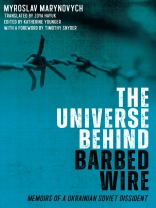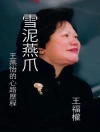This memoir by a prominent Ukrainian dissident, now in English translation, offers a unique account that spans the entire postwar period, from the author’s childhood in newly Soviet western Ukraine and coming of age within the Communist system to the collapse of the Soviet Union, concluding with his reflections on culpability and justice in the post-Soviet context. Marynovych’s description of the varied landscape of Ukrainian dissent in the 1960s and 1970s focuses on the emerging human rights movement, especially the creation of the Ukrainian Helsinki Group, of which he was a founding member. He vividly recounts his encounters with the Soviet repressive apparatus, including his arrest and trial, and offers a rich picture of daily life in a Siberian prison camp and his internal exile in Kazakhstan.
Imbued with the author’s deep Christian convictions, this memoir sheds light on the key role faith played for some participants in the Soviet human rights movement, a movement that has most often been seen as having a secular inflection. It also provides a fresh look at the complex place of Ukrainian dissidents within the broader Soviet human rights movement, as well as the interplay between human rights advocates and other dissident groups in Soviet Ukraine.
สารบัญ
Introduction
Establishing the Fundamentals of Fate
Finally in Kyiv
The Era of the Helsinki Movement
Arrest, Investigation, and Trial
The Labor Camp Up Close
In the Vise of the Strict Regime
The Pinnacle of the Struggle
When the Soul Snagged on Barbed Wire
Among the Kazakhs
Conclusion
เกี่ยวกับผู้แต่ง
TIMOTHY SNYDER is the Richard C. Levin Professor of History at Yale University. He is the author of numerous books on East and Central European history.












